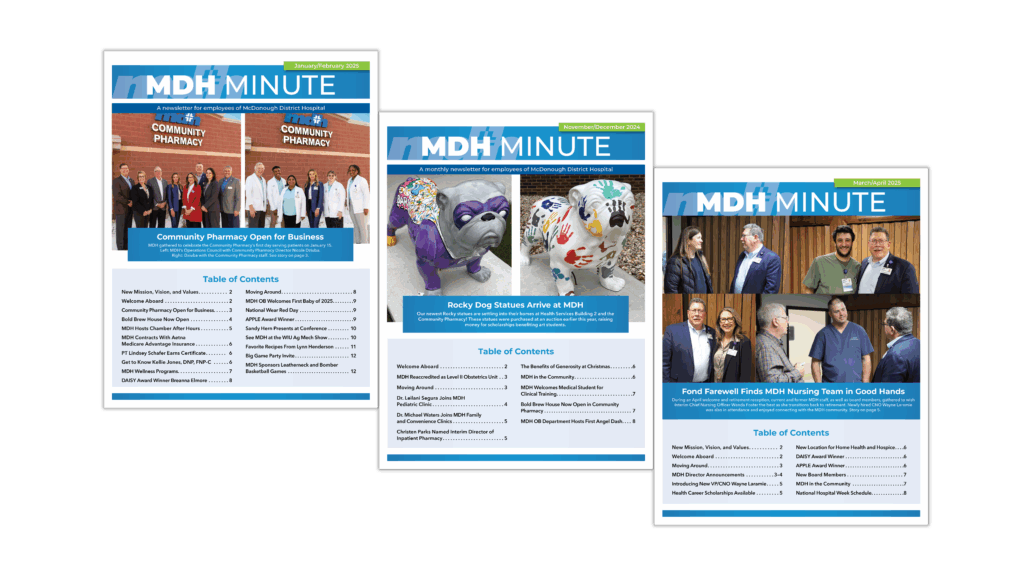by Moriah Morter, WP writing assistant, and Lexie Thomas, WP owner and content expert
In the changing landscape of internet culture, where more traditional search results compete with AI overviews and articles, we’re here to verify that people-first content still matters … perhaps more than ever. In fact, companies like Google are constantly working to ensure that the most helpful result—like your content—is finding its way to those who need it.
How does Google do this?
With Google E-E-A-Ts … and critics!
Maybe you’ve heard of Google’s E-E-A-T standards: experience, expertise, authority, and trust? It’s these four essential ingredients that Google assesses to help serve its users the best outcomes.
First, it’s important to note that Google Search Central clarifies for content writers that E-E-A-T is not equal to solid search engine optimization and does not dictate where results will appear on a webpage. However, Google’s algorithm is designed to give more weight to content that strongly aligns with E-E-A-T.
How does Google assess E-E-A-T? With people! Qualified individuals, known as Google Search Quality Raters, are asked to critique samples generated from specified search results against rater scales in accordance to Google’s guidelines, which include E-E-A-T standards. In a nutshell, Google is telling us it values the most helpful websites.
Let’s spend some time on each piece of E-E-A-T to understand why helpful content gets the biggest plate at the table.
Expertise: The first E
Expertise focuses on the breadth and depth of your knowledge. Google looks for content that is accurate, reputable, and thorough. A baker vlogging about owning her own bakery should demonstrate her expertise through her background and skillset.
The goal is to create people-first content that leaves audiences feeling that they’ve gained useful, trustworthy, and actionable knowledge.
Here are some examples of how to demonstrate expertise:
- Cite reputable sources: In an article discussing emerging farming practices, a blogging farmer could cite recent studies.
- Focus on content within your skillset: A vegan chef may not get high marks for an article describing how to smoke the best brisket.
- Offer extensive, thorough advice within your niche: The vlogging baker could produce an in-depth video series sharing different aspects of the same topic, like the secret to making the tastiest chocolate chip cookies, the best types of butter to use for cookies, the easiest low-cost cookies to bake, and her favorite tools for baking cookies.
Experience: The new E
Experience is a recent addition to Google’s E-E-A-T, a trend that demonstrates Google’s interest in rewarding real people with firsthand experience. In a world dominated by AI, audiences want to truly know there’s a human behind the article who does or studies the topic at hand.
To put the capital E in experience, curate content that leaves your audience feeling like they shared a real-life event with you or assures them with your years of experience.
Here are some examples of how to demonstrate experience:
- Include first-person statements: In an article on how to care for roses, a gardener could say, “I learned this tip from when I planted hybrid tea roses last year …”
- List your years in business and/or years of experience: This could be done on the about us section of your website or in your team’s bios to demonstrate their years of service.
A is for authority
While it might be easy to confuse authority and expertise, authority represents how well the creator is known instead of how much they know. An author or business can establish their authority through their distinction, consistency, and credibility as a reliable source within their niche.
Audiences should be able to recognize your brand, identity, name, or business and verify other sources that trust your information.
Here are some examples of how to demonstrate authority:
- Connect with your audience: Reference conferences, local events, seminars, or workshops that you and/or your company participated in that related to your topic.
- Make reviews or comments visible: This demonstrates that audiences view you as a source of information or products, while having the added benefit of passively adding fresh content to your site.
- Mention outside sources that rely on your business, products, or content: If you know your company’s garnered praise in a recent newspaper article or social media post, be sure to mention that on your website!
T is for trust
Google emphasizes that of all the E-E-A-T standards, trust matters most. Trust is defined by Google as “the extent to which the page is accurate, honest, safe, and reliable.”
Trust is especially significant when it comes to content that could impact your audience’s health, safety, or finances. Information related to those specified topics are analyzed by Google Raters with greater scrutiny. Low-quality pages that are considered spammy or harmful risk receiving the lowest-quality rating.
To maintain and build trust, verify that your content aligns with your business’s standards, values, and mission statement. Double check that your content is up to date and imparts helpful, user-friendly advice to your followers.
Shared articles are a good indication that your audience trusts the content you are developing. Another sign you’re gaining ground is if you receive follow-up questions as people put your recommendations into practice.
These issues could negatively impact your trust assessment:
- Frequent 404 errors and/or broken links on your website
- Your content appearing untrustworthy or spammy
- Your online presence not meeting any of Google’s E-E-A standards
Food for thought
- AI might seem like a convenient way to produce content, but relying on it to author content is a practice that comes with serious risks. In 2024, Google removed over 837 websites that were relying on AI to produce content. According to a study by Originality.ai, over 50% of the affected websites had used AI to generate 90%–100% of their content. While AI can be a great way to gather ideas and draft an outline, only your own words can bring E-E-A-T to the table.
- While it is always beneficial to meet as many letters in Google’s E-E-A-T standards as possible, you shouldn’t stress over meeting all four if you offer quality content. For example, a successful NFL spokesman might have expertise because of his knowledge of player stats, team rosters, and the history of the game, without ever having played in the NFL. Likewise, an NFL player who later becomes a spokesperson might not be as well versed in the history or data of the sport but would be valued for his life experience and knowledge from playing the game.
When you E-E-A-T, it should be nourishing
Like a five-course meal, writing E-E-A-T friendly content that garners recognition from your audience takes time.
When we support our clients with blog articles and video content, we make sure we have the in-depth knowledge required to create experience-rich content or that we partner with their in-house experts or customers as we work. Reach out if you need help from writers who understand how to write people-first content that will leave your followers hungry for more!
Supporting sources and related reading:
- Creating helpful, reliable, people-first content (Google Search Central)
- Google E-E-A-T: What Is It & How To Demonstrate It For SEO (Search Engine Journal)
- Google’s March 2024 Core Update Impact (Search Engine Journal)
- Can Google Detect and Does it Penalize AI Content (Originality.ai)
- Search Quality Rater Guidelines: An Overview (Google Services)
- The Ultimate Guide to E-E-A-T in 2023 (We Write Blog Posts)
Featured image source: Regina Foster – adobe.stock.com



